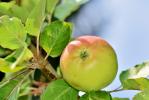LIFE Project: LIFE TRIPLET: Digitalization of efficient fertigation management for sustainable agriculture.
- Type Project
- Status In progress
- Execution 2023 -2026
- Assigned Budget 2.839.669,00 €
- Scope Europeo
- Autonomous community Murcia, Región de
- Main source of financing LIFE
- Project website Web del proyecto
LIFE TRIPLET aims to implement, demonstrate, and disseminate a digital crop monitoring tool to optimize sustainable fertigation strategies and promote their acceptance and large-scale use in woody crops in water-scarce Mediterranean agroecosystems, without compromising the quality standards required by export markets.
In Mediterranean agricultural systems, farmers are facing increasing water scarcity, which has led them to seek alternative water sources. This has led to high costs and a loss of water quality, making irrigation management and crop fertilization, and ultimately food production, very complicated. Therefore, it is necessary to combine technological advances, digitalization, and agronomy to increase the sector's efficiency and competitiveness through better management of available resources.
- To plan sustainable management strategies for the most representative horticultural and woody crops on farms in irrigated areas of the seven irrigation communities (CC.RR.) of Andalusia, Castilla La Mancha, Murcia and Valencia, located in the River Basin Organizations (OCH) of the Segura, Guadiana and Júcar rivers, using indicators of the water status of the soil-plant-atmosphere system to minimize the water footprint of the crop and increase water and fertilizer efficiency.
- To evaluate the impact of sustainable fertigation on vegetative and fruit growth, production, and yield quality, paying special attention to the specific characteristics of each monitored crop (vegetables and woody crops) and the incidence of pests and diseases. The impact of the ecological footprint (water footprint and carbon sequestration effect) across the entire irrigated area will also be assessed, as well as the efficient use of irrigation water and nutrients, and the reduction of the impacts of planned phytosanitary treatments.
- Implement an easy-to-use, automatic irrigation system powered by predictive models based on statistical and Artificial Intelligence (AI) techniques. The system will regulate the water and nutrients applied in the sustainable fertigation treatment according to established irrigation instructions, availability and quality predictions at altitude, and will compensate for any variations that may occur, considering different conventional and non-conventional irrigation water sources.
- To ensure the sustainability and transferability of project results, the LIFE TRIPLET system will be marketable in the agricultural sector, improving farm competitiveness by reducing production costs over a reasonable payback period. Transferability to different EU Member States that share similar water stress problems will also be addressed. To this end, feasibility studies will be conducted for different regions.
- To increase information and training for administrative and commercial entities, technical managers, farmer-entrepreneurs, collaborating farm owners, students, and future researchers on the sustainable management of fertigation, as well as the potential for integrating new technologies into specific irrigation applications to optimize water use in agriculture.
- A 22% reduction in crop water application and, consequently, in pressures on water resources, especially those from depleted groundwater sources.
- 17% reduction in nitrogen fertilizers and 10% reduction in agrochemical applications.
- 5% reduction in energy consumption through non-conventional water management.
- Progress toward climate neutrality on farms by reducing CO2e emissions by 34% and other greenhouse gas (GHG) emissions such as N2O by 78%, and by increasing carbon sequestration and storage.
- From a socioeconomic perspective, the project will demonstrate that the proposed technology can reduce production costs by more than 10% by saving water, energy, nutrients, and agrochemicals, while increasing crop yield by 20%, thus increasing crop profitability (from +10% upfront to +10% in the future).
- The project will also improve the training, productive capacities, and performance of farmers and technical advisors in irrigation and crop management, thereby increasing their competitiveness.
- The living laboratories or demonstration plots occupy an area of 169.2 ha. By the end of the project, 30% of the provincial area of the crops studied will have adopted the LIFE TRIPLET strategy (53,430 ha).
- Coordinator/entity name: Alejandro Pérez Pastor
Postal address: Plaza del Cronista Isidoro Valverde, La Milagrosa Building, 30202, Cartagena
- UNIVERSIDAD POLITECNICA DE CARTAGENA
- CETAQUA
- CENTRO TECNOLOGICO DEL AGUA
- FUNDACION PRIVADA
- AQUATEC SOLUCIONES MEDIOAMBIENTALES S.A.
- INSTITUTO MURCIANO DE INVESTIGACION Y DESARROLLO AGRARIO Y MEDIOAMBIENTAL (IMIDA)
- SISTEMA AZUD SA
- FEDERACION NACIONAL DE COMUNIDADES DE REGANTES
- FMC AGRICULTURAL SOLUTIONS SA
- AGBAR AGRICULTURE SA
- COMUNIDAD DE USUARIOS DE LA MASA DE AGUA SUBTERRANEA MANCHA OCCIDENTAL II







